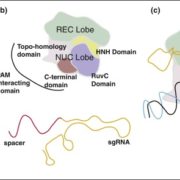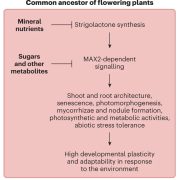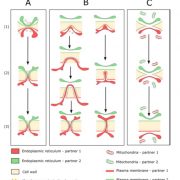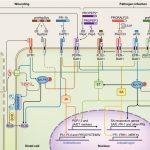Perspective: Revolutionizing agriculture with synthetic biology (Nature Plants)
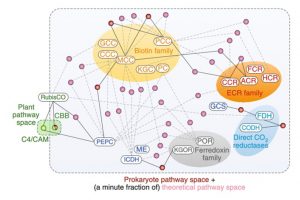 In a new Perspective by Wurtzel et al., the authors lay out SynBio’s tremendous potential to transform agriculture. Consider how we might leverage the “vast design space that plants have not occupied.” As an example, plants employ two pathways to fix carbon, and prokaryotes another six, but scientists have identified another 28 potential pathways (so far) that could be introduced into plants or other organisms, to improve efficiency, resiliency or secondary product formation. Like engineering, synthetic biology invites us to imagine what we’d like to do or have, and then figure out how to make it happen (using engineering’s design-test-build-learn cycle). The authors describe SynBio’s progress in carbon fixation, nitrogen fixation, stress response, and high-value chemical synthesis (e.g., opioids, taxol), and discuss changes needed in “education and training, scientific mindsets, physical infrastructure and societal attitudes”. This latter part has some excellent suggestions for how all plant scientists can contribute towards enabling plant SynBio to flourish and improve our future. (Summary by Mary Williams) Nature Plants 10.1038/s41477-019-0539-0
In a new Perspective by Wurtzel et al., the authors lay out SynBio’s tremendous potential to transform agriculture. Consider how we might leverage the “vast design space that plants have not occupied.” As an example, plants employ two pathways to fix carbon, and prokaryotes another six, but scientists have identified another 28 potential pathways (so far) that could be introduced into plants or other organisms, to improve efficiency, resiliency or secondary product formation. Like engineering, synthetic biology invites us to imagine what we’d like to do or have, and then figure out how to make it happen (using engineering’s design-test-build-learn cycle). The authors describe SynBio’s progress in carbon fixation, nitrogen fixation, stress response, and high-value chemical synthesis (e.g., opioids, taxol), and discuss changes needed in “education and training, scientific mindsets, physical infrastructure and societal attitudes”. This latter part has some excellent suggestions for how all plant scientists can contribute towards enabling plant SynBio to flourish and improve our future. (Summary by Mary Williams) Nature Plants 10.1038/s41477-019-0539-0


